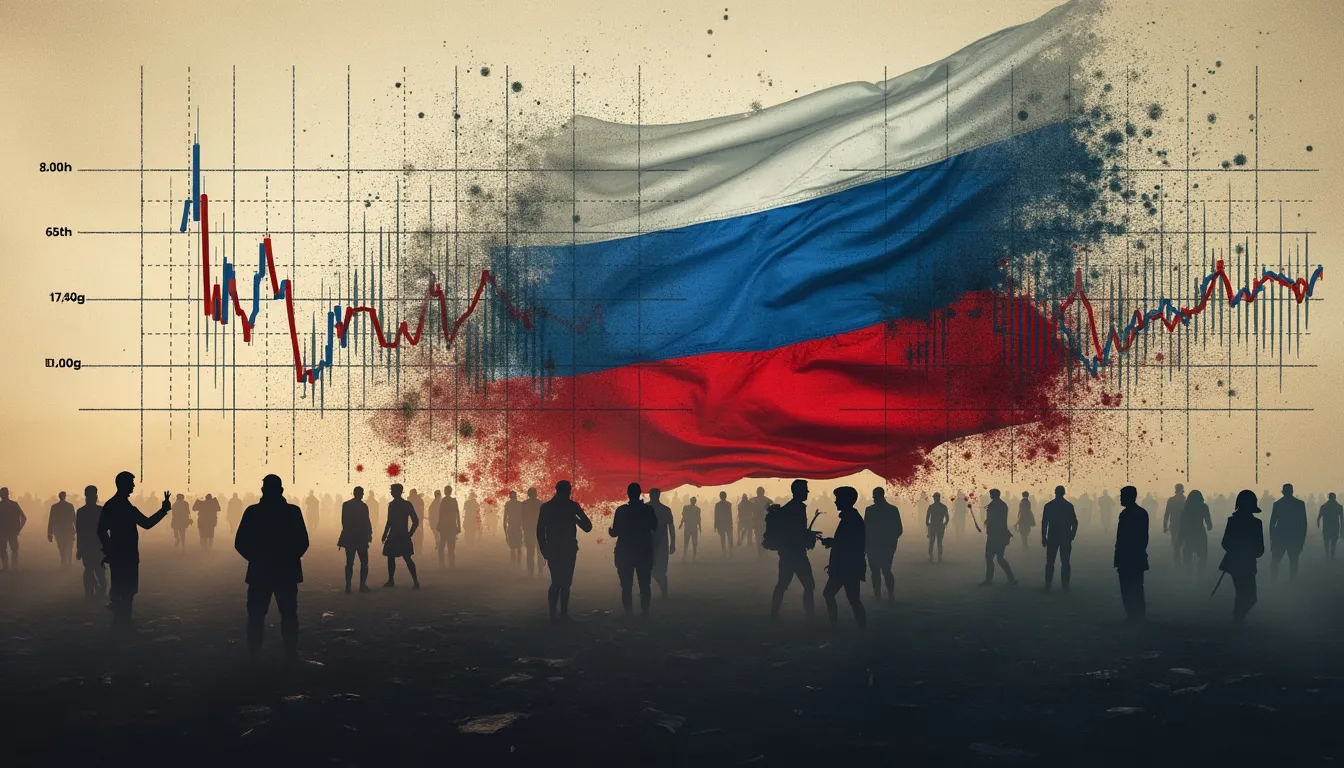The socio-political background in Russia continues to deteriorate, and this is becoming more and more evident with each new sociological survey. Although loyalty to the central government is still at a fairly high level, people’s expectations are changing rapidly, and not for the better.
Abreakdown in the current war seems inevitable. Neither side has the resources to sustain the fighting for many years. However, it is important to understand the key difference between Ukraine and Russia: Ukraine has broad international support that is not limited in time. In contrast, the so-called”infinite resource” of the Russian Federation has turned out to be quite exhaustive, both economically and socially.
According to a recent sociological study by the Russian Levada Centre entitled “The Conflict with Ukraine: Key Indicators in August 2024”, there has been a significant decline in support for the continuation of hostilities among Russian citizens. While support for their own army still remains at 78%, only 41% of respondents are in favour of continuing hostilities in some form. On the contrary, half of the citizens of the Russian Federation support the immediate start of “peace talks”.
The attitude of Russians towards possible mobilisation is particularly revealing. 60% of respondents are against the very fact of mobilisation. Women (58%) and young people under the age of 24 (55%) are the most afraid of possible general mobilisation. This shows that the very population groups that would bear the brunt of mobilisation are mostly negative about the continuation of the war.
Interestingly, the three biggest fears of Russians include rising prices, the problem of migration (which has become more acute after the terrorist attack on Crocus City Hall) and the war with Ukraine. This demonstrates that domestic problems and threats are beginning to worry Russians as much as the foreign policy adventures of their leadership.
The highest level of support for the war is observed among older men. Instead, women (56%) and young Russians (66% aged 18 to 24) mostly support the immediate start of peace talks. This is an important indicator, as it is young people and an active part of the female audience who form the future opinion of society.
Regional and national centrifugal movements remain one of the biggest factors of instability in today’s Russia. At the same time, they arise not only in the traditional regions of resistance, such as Tatarstan, Dagestan or Bashkiria. Eventhe traditionally”peaceful” Smolensk region has a powerful separatist movement, theSmollandia(Smolensk Republic) project.
However, despite all these trends, it would be naïve to expect an imminent revolt, that will bring down the current government in Russia. Ukraine and the civilised world must consistently continue armed resistance, political and economic pressure on the aggressor.
Itis interesting to see how these socio-political sentiments are reflected in the economic behaviour of Russians. A good example is the situation in the automotive market. The lack of significant progress at the front, economic stagnation, inflation and the situation in the Kursk region – all of this should have made Russians increase their support forthe “efforts”of the country’s leadership and their own army. Instead, we are seeing the opposite.
Most Russian “warbloggers” note a significant decline in support for the army and a refusal to actively “volunteer” on the part of Russians. On the contrary, after the start of the operation in the Kursk region and the slowdown in the occupiers’ advance in the Pokrovsk sector (the only one where active offensive actions of the occupation army are recorded), the mass Russian consumer preferred to make expensive purchases that had been postponed for a long time.
According to the Russian analytical company Avtostat, 148 thousand new passenger cars were sold in Russia in August 2024, up 40.0% year-on-year. From 1 to 7 September, dealers sold 38,115 new cars. With major global manufacturers leaving the Russian market, the top sellers were Russia’s AvtoVAZ and Chinese manufacturers Geely, Changan, Omoda, Jetour and others.
At the same time, the majority of new cars come from Chinese manufacturers. AvtoVAZ’s year-on-year result will not exceed 42%. Interestingly, the price difference between the new Haval H9 in China and Russia is 40%. This is typical for other models of Chinese cars. Given the international sanctions, Chinese manufacturers continue their policy of setting maximum margins on”risky” transactions with Russians.
It is noteworthy that Russian society has virtually ignored the complications on the Ukrainian front and the operation in the Kursk region. The decline in “volunteer aid” and other material support for the army has been replaced by active “long-term investments” in significant purchases. In other words, the average Russian, who has some financial savings, has finally opted for long-term investments, expecting further deterioration of the economic situation. At the same time, he ignored the calls of “warbloggers” to help “our boys”.
According to the Chief of the Defence Intelligence of Ukraine Kirill Budanov, the Russian economy will begin to feel the effects of global events in the summer of 2025. “This is not a collapse. But this is the period when financial and economic losses will have a more or less serious impact. This will not bring Russia to its knees, unfortunately, at that time, but they will start to think much more about what next steps to take”, – said Budanov.
Thus, despite the high level of loyalty to the central government, socio-political sentiment in Russia continues to deteriorate. The decline in support for the war, especially among young people and women, negative attitudes towards possible mobilisation and a reorientation towards personal economic interests are indicative of the deep processes taking place in Russian society. However, these changes should not be overestimated – they are unlikely to lead to rapid political change in Russia. Ukraine and its allies should continue to put consistent pressure on the aggressor, realising that the effect of this pressure can only be felt in the medium term.


Leave a Reply